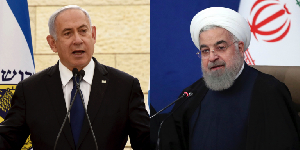The exchange rate between the naira and dollar was quoted for as high as N895/$1 on the black market, the weakest in history.
A survey of major foreign currency traders in Nigeria indicates demand is still high for the greenback despite supply shortages.
On the P2P market, the exchange rate was quoted for as high as N883/$1 among buyers and sellers who rely on cryptocurrency to close trades.
Meanwhile, on the official I&E window the exchange rate closed at N775/$1 on Thursday.
The disparity between the official and parallel market rate has now widened to N120/$1 in a matter of months since the unification of the exchange rates markets was announced.
Exchange rate depreciation unabated
The gap between the official and parallel market rate continues to widen as supply related challenges continue to impact the forex market and exchange rate stability.
The exchange rate disparity was a major trigger for the introduction of the revised foreign exchange market forcing authorities to ease foreign exchange controls in mid-June to simplify its monetary regime.
However, this move appears to have led to heightened volatility in the black market, driven by strong demand from manufacturers, importers, students, and travelers.
Nigeria’s import-based economy heavily relies on exchanging naira for dollars at official and parallel market counters, leaving the naira susceptible to various factors such as currency speculation, intermediaries, weak oil receipts, and foreign trade deficits.
The increased volatility in the black market is mainly due to strong demand pressure from various sectors, reflecting the import-heavy nature of the Nigerian economy.
Currency speculators, intermediaries, weak oil receipts, and foreign trade deficits further contribute to the naira’s vulnerability.
What the government is saying
During a Senate examination to confirm his ministerial appointment, Wale Edun, an economic expert, pointed out that the weaker exchange rate of around N860 prevailing in the parallel market is not supported by the fundamentals of the Nigerian economy.
He suggested a more appropriate ratio of around N700 against the dollar, without providing further details.
“The 860 we see is not supported by the fundamentals of the Nigerian economy.”
However, the central bank acting governor, Fola Shonubi had stated that exchange rate volatility was supply remated and synonymous with the early periods of introduced a market determined exchange rate.
Despite the substantial devaluation earlier, the inconsistency in applying a more liberal monetary regime poses challenges in stabilizing the exchange rate.
Addressing these issues will be crucial to restoring confidence in the naira and ensuring sustainable economic growth.
Meanwhile, EIU report noted that the CBN unified multiple Nigerian exchange rates in June, leading to the largest devaluation of the naira in history and significantly narrowing the gap (previously 60%) with black market rates but highlighted the inconsistencies in its application to a more liberal monetary regime, as currency access restrictions still apply for a wide range of imports.
Business News of Sunday, 6 August 2023
Source: www.nairametrics.com













